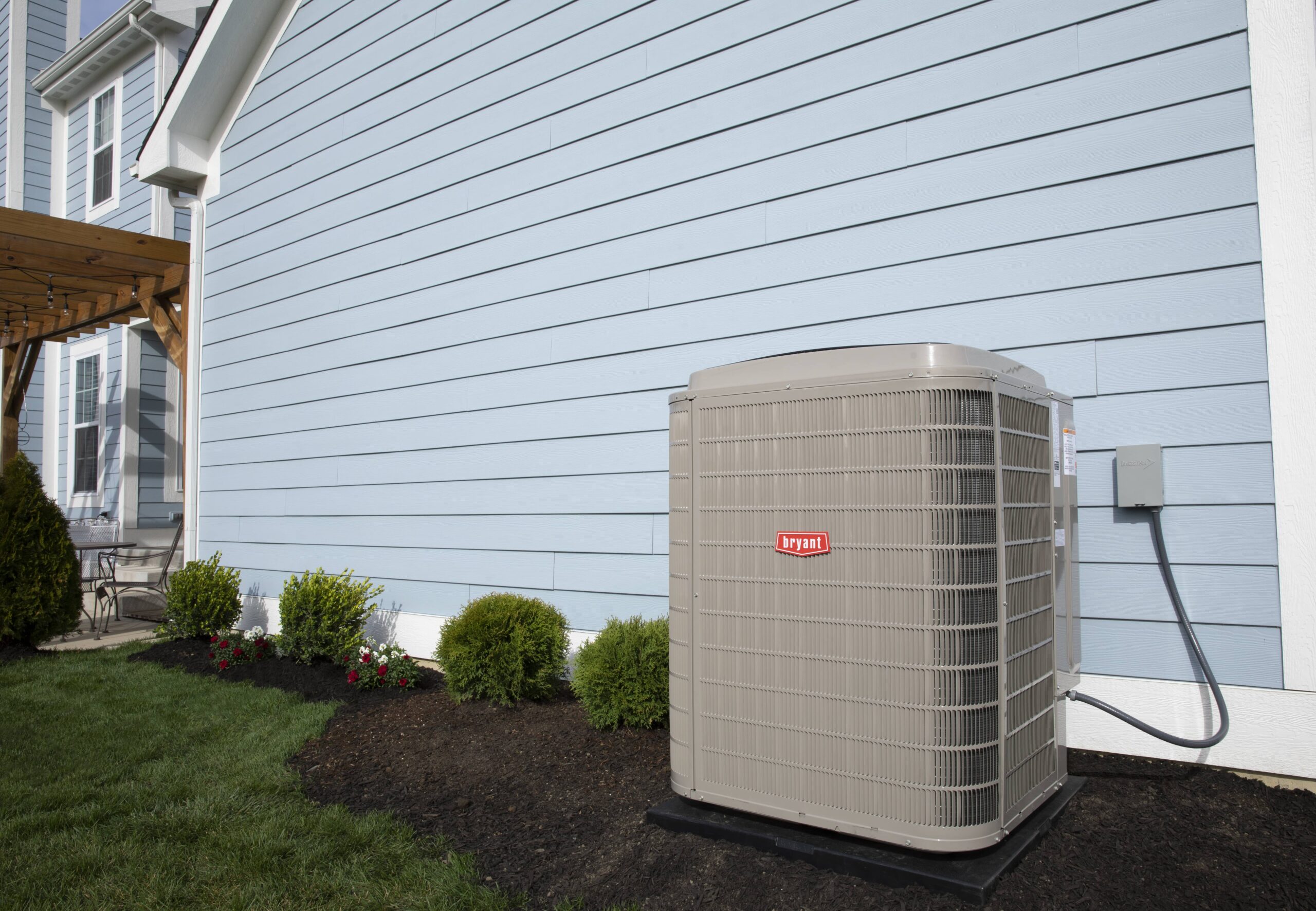WHY A NEW AIR CONDITIONER UNIT WILL LIKELY COST YOU LESS RIGHT NOW COMPARED TO THIS SUMMER
Most of us have busy schedules and a long to-do list for our homes. That can make it difficult to plan ahead and we aren’t thinking about taking actions now to prepare for the months ahead. When the weather is cold and you are still using the furnace to stay warm and comfortable, you probably aren’t worried about purchasing a new air conditioner unit for the summer. However, now may be the perfect time to invest in a new unit to make sure that you are able to stay cool and keep utility bills low this summer. In many cases, it will cost less to purchase an air conditioner now compared to shopping for one in a few months.
Purchasing a New Air Conditioner Unit
Purchasing a new air conditioner unit in the months before and after summer can provide you with significant savings and make sure to help you prepare for warmer temperatures. The last thing you want is for temperatures to spike and you suddenly realize that your AC unit is either not working at all or struggling with performance and efficiency. The first hot days of summer create a rush for AC repairs and installation and if you find yourself in the position of needing an HVAC contractor, it may take a while to even schedule an appointment.
In addition, when you are in a pinch and need to replace your unit, you won’t have as much time to do thorough research. Buying an AC unit in the off-season when it isn’t even being used will provide you with plenty of time to learn about different manufacturers and models. You can find an efficient and affordable solution that will best serve your home without having the pressure of having to make a quick decision.
Starting the summer with a new air conditioner also means that you will be saving as you cool your home. Today’s models are more efficient and that will directly translate into lower monthly bills. Instead of overpaying over the summer, you can enjoy instant savings on your utility average costs.
Why Invest in a New Air Conditioner Unit?
Investing in a new air conditioner unit can feel like taking on a big cost. However, even the most durable air conditioners have a fixed lifespan and can’t last forever. If your AC unit is more than 10 years old, you may find that you are having to deal with more repairs. Not only can this be costly, it is also an inconvenience. At a certain point, it is time to call your losses and stop putting money into an aging unit.

4 Reasons Why a New AC Unit is a Good Investment
- Technology has come a long way. What may have been considered energy efficient a decade ago can’t compete with today’s AC units. In fact, a Seasonal Energy Efficiency Ratio (SEER) of six or less was common in the past while new units are required to have a SEER of at least 13. Based on these ratings and your utility bills, you can actually calculate how long it will take for you to recoup the amount spent on the new unit. Don’t forget to factor in potential tax credits and utility rebates you can earn for installing more efficient units.
- A new unit is going to be more reliable. You won’t have to worry about the unit breaking down in the middle of a heat wave. If a new unit does require repairs, there is a good chance that these will be covered by warranty and you won’t have to pay out of pocket.
- Your AC unit also has a significant impact on your indoor air comfort. New models will be able to more effectively maintain humidity levels making your home FEEL much cooler than it normally would at the same temperature. You will especially notice the different in hot humid days during the Summer months.
- Your home will be more marketable when you are ready to sell. Buyers don’t want to have to deal with replacing major systems in their new home. A new AC unit is a great selling point.
Features of Central Air Conditioner Units
Today’s new AC units are more advanced than ever and have incorporated IoT solutions for a smarter and more convenient way to operate your air conditioning. Smart thermostats can learn your habits and/or be programmed to raise the temperature when you aren’t home and start cooling things down again before you return from work. You can also use an app to remotely control the unit with your smartphone.
There are also certain models and subscription plans that will monitor your unit and provide you with alerts. You can be notified if the unit stops working or get reminders for regular maintenance appointments. This technology puts you in control and also makes it a lot easier to identify problems early on and avoid skipping essential maintenance throughout the year.
Understanding Your Air Conditioner Unit
There are two types of air conditioner units.
- A packaged central air conditioner features an outdoor unit that contains all the major components needed to cool the air including condensing coils, compressor, fan, and refrigerant. In most homes, the unit is placed on a concrete slab outside the home. The air is supplied and returned through ducts that go through the exterior wall.
- Split system divides the AC unit between two separate cabinets. An outdoor cabinet will contain the outdoor condensing coil, fan, and compressor while the blower and indoor heat exchanger are stored in an indoor cabinet.
Essentially, an AC unit works by using refrigerant to remove heat and humidity from the air. A fan works to blow cool air into the home while an AC condenser releases warm air into the outdoors. You are able to control the AC unit and regulate indoor temperatures with a thermostat located in the home.
Should I Buy an Air Conditioner Outside Unit?
Many people worry that buying a packed air conditioner system that is located outside will leave it open to more wear and tear. However, these units are designed to be durable and withstand all sorts of extreme weather conditions. While it is certainly a good idea to keep the unit free of leaves and other organic debris, having an outdoor unit won’t result in needing more repairs and/or a shorter unit lifespan.
An outdoor packaged unit is also a good choice if you don’t have a crawlspace or you simply want to conserve indoor space. In addition, placing the unit outside can cut down on noise and help keep your home quiet.
Benefits of a Split Unit Air Conditioner
If you own a home that doesn’t have an existing air conditioning system already installed, then installing a split unit air conditioner can be a more economical option. It can work in conjunction with the furnace, so that you have less equipment to purchase and install.
Compared to packaged AC units, split units tend to be considerably more efficient and energy star rated. As mentioned above, this will mean lower utility bills and more value added to your home overall. Finally, since split units rely on two different cabinets to store components, they can be more flexible when it comes to configuring your central air system.
Ultimately, both types of AC units will effectively cool your home, help improve indoor air quality, and create a more comfortable indoor environment. Choosing the right option may depend on your existing HVAC configuration and how much you want to optimize efficiency.
Just keep in mind that if you wait until summer is in full swing to replace and upgrade your air conditioning unit, you can expect to pay more, have more trouble finding models in stock, and have to wait to schedule your AC unit installation appointment. Now is the best time to start planning for your new AC unit so that you can get the best prices and be prepared for those first warm days.
Schedule a Free Estimate For a New Air Conditioner Unit Today
Time to replace your air conditioner unit? Superior offers free estimates on all new air conditioner unit installations. Our team will come to your home and assess your current air conditioning needs, providing you with multiple options so you can find the perfect fit for your home. To schedule a free in-home estimate, call our office or by filling out the form below.
Receive a no-obligation price quote on up to 4 different price-points. Affordable pricing. Fast turnaround on estimates.
"*" indicates required fields





